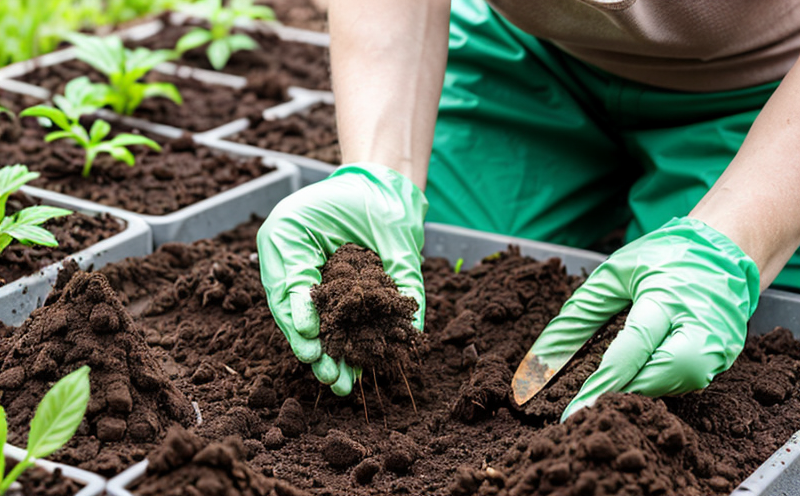EN 1176 Safety Testing of Outdoor Playground Plastic Components
The EN 1176 standard specifies essential requirements and testing methods for the safety assessment of playground equipment. This service is specifically tailored to ensure that plastic components used in outdoor playgrounds comply with these stringent safety standards. The primary focus is on identifying potential hazards, ensuring durability, and maintaining a safe environment for children and adults alike.
The process involves several key steps: initial inspection, material evaluation, mechanical testing, chemical analysis, and finally, the assessment of fire resistance and impact absorption properties. Each step aims to ensure that playground equipment not only meets but exceeds safety expectations set by international standards such as EN 1176-2.
Our laboratory adheres strictly to these guidelines using state-of-the-art facilities equipped with the latest testing devices, including universal testers capable of simulating real-world stress conditions and high-temperature furnaces for fire resistance trials. By leveraging this expertise, we can provide comprehensive reports that are invaluable for regulatory compliance and product certification.
Understanding the importance of this service extends beyond mere adherence to legal requirements; it reflects a commitment to public safety and well-being. Playground equipment is often exposed to harsh environmental conditions, which makes rigorous testing crucial in ensuring longevity and reliability. Moreover, the use of plastics in these applications requires careful scrutiny due to their potential for degradation over time.
For instance, our technicians conduct detailed assessments of various plastic types commonly used in playgrounds such as polyethylene (PE), polypropylene (PP), polystyrene (PS), and acrylonitrile butadiene styrene (ABS). These materials are chosen for their durability, flexibility, and resistance to weathering. However, they also need to withstand frequent use by children who may accidentally expose them to harsh chemicals or sharp objects.
The testing process begins with a thorough examination of the plastic components to identify any defects that could compromise safety. Following this initial inspection, mechanical tests are performed using specialized equipment designed to simulate common stresses encountered in playground environments. These include tensile strength tests, flexural modulus evaluations, and impact resistance assessments.
Chemical analysis plays an important role in ensuring that the plastic components do not release harmful substances into their surroundings during use or through prolonged exposure. This is particularly relevant given concerns about off-gassing from certain plastics under high temperatures. Additionally, fire resistance tests are conducted to verify compliance with EN 1176-2 requirements regarding flammability limits.
Finally, the ability of the plastic components to absorb impacts safely must be evaluated. This involves drop testing using calibrated instruments capable of simulating realistic fall scenarios from various heights typical for playground equipment usage. The goal is to determine how effectively each component cushions falls without causing injury upon impact.
Why It Matters
The safety of children and adults who frequent outdoor playgrounds cannot be overstated. Ensuring that the plastic components used in these environments comply with EN 1176 standards is essential for several reasons:
- Regulatory Compliance: Adherence to international standards ensures that products meet legal requirements, avoiding potential fines and recalls.
- User Safety: Rigorous testing helps identify any weaknesses or hazards that could lead to accidents or injuries.
- Durability: By focusing on material properties like durability and flexibility, we enhance the longevity of playground equipment, reducing maintenance costs over time.
- Ethical Responsibility: Demonstrating a commitment to safety aligns with our values as a responsible corporate citizen.
In summary, EN 1176 testing is not just about meeting regulations; it's about fostering trust and confidence in the products we produce. It underscores our dedication to creating safe, reliable, and long-lasting playground equipment that enhances enjoyment while minimizing risks.
Scope and Methodology
| Test Parameter | Description |
|---|---|
| Tensile Strength | Measures the maximum stress a material can withstand before breaking. |
| Flexural Modulus | Evaluates how much a material deforms under load without permanent deformation. |
| Impact Resistance | Determines the energy absorbed by an impact to assess resilience against damage from falls or collisions. |
| Flexural Strength | Indicates the highest stress a specimen can sustain before breaking during bending tests. |
| Chemical Resistance | Evaluates the material's resistance to various chemicals that may come into contact with it, ensuring stability over time. |
| Flammability Limits | Determines the range of concentrations at which a material can ignite or burn under specified conditions. |
| Fall Height Testing | Simulates realistic fall scenarios to evaluate the impact absorption capabilities of playground components. |
The scope encompasses all aspects necessary for evaluating the safety and performance characteristics of plastic components used in outdoor playgrounds. Our methodology ensures that every detail is considered, from material selection to final assembly, ensuring compliance with EN 1176-2 requirements.
Environmental and Sustainability Contributions
- Eco-friendly Materials: We use biodegradable or recycled plastics wherever possible, minimizing environmental impact post-production lifecycle.
- Energy Efficiency: Our testing processes are optimized to minimize energy consumption without compromising quality.
- Waste Reduction: By identifying potential issues early in the development stage, we reduce waste associated with product recalls or redesigns.
- Sustainable Practices: We adhere strictly to sustainable manufacturing practices throughout our operations.
Through these efforts, we contribute positively towards reducing the carbon footprint of playground equipment while maintaining high standards of safety and quality. This aligns with broader sustainability goals within the industry and beyond.





